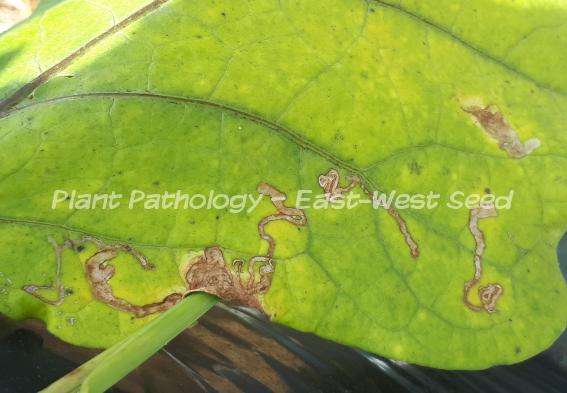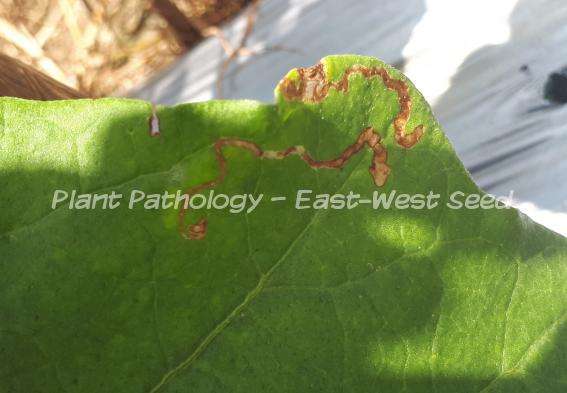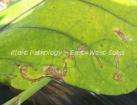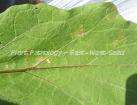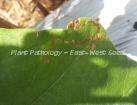| Species: | ||
 |
Liriomyza trifolii (Burgees, 1880) | |
| Common name: | ||
 |
American serpentine leafminer | |
 |
Serpentine leaf miner | |
 |
Chrysanthemum leaf miner | |
 |
American clover miner | |
 |
gram pod borer | |
| Damaging stage: | ||
 |
Larvae | |
| Crops Affected: | ||
 |
Cucurbits, solanaceous, legumes, brassicas, onion | |
| Characteristic Damage: | ||
 |
Larval feeding causes characteristic tunnels/ irregular mining patterns that enlarge as the larvae mature. | |
 |
Mining reduces the photosynthetic capacity of the leaves. | |
 |
Severe mining causes premature dropping of leaves. | |
| Management and Control: | ||
 |
Monitor the area regularly. | |
 |
Use yellow sticky traps to reduce adult leaf miner. | |
 |
Remove and dispose properly heavily infested leaves. | |
 |
Cultivate the soil by plowing and harrowing and use plastic mulch to minimize pupation in the soil. | |
 |
Use of natural enemies like parasitic wasps from the families Braconidae, Eulophidae, and Pteromalidae can keep leaf miner population below economic threshold level. | |
 |
Apply insecticides like buprofesin, profenofos and cyromazine when necessary. | |
| References: | ||
| http://www.cabi.org/isc/datasheet/30965 | ||
| http://entnemdept.ufl.edu/creatures/veg/leaf/a_serpentine_leafminer.htm | ||
| http://www.extento.hawaii.edu/kbase/crop/type/liriom_t.htm | ||
To view other diseases, click here.
Need more help? Ask the Doctor.



